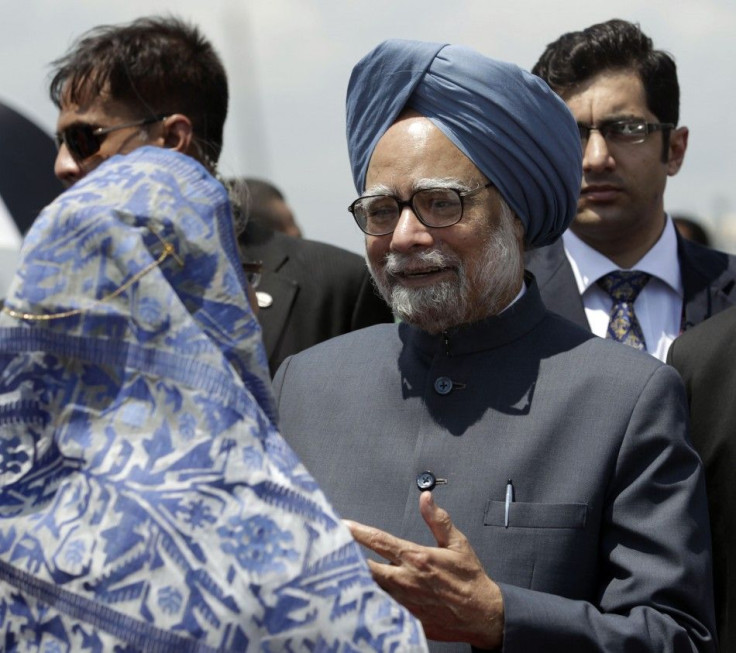India’s PM on ‘Historic’ Trip to Bangladesh

The Prime Minister of India, Manmohan Singh, is in Bangladesh in a two-day quest to enter into some important new trade and security agreements with his Dhaka counterpart, Sheikh Hasina.
This will mark the first visit to Bangladesh by an Indian Prime Minister in a dozen years and is being described by BBC correspondents as a way for India to contain China’s growing influence in South Asia. (Hasina visited New Delhi in January of last year).
China is Bangladesh’s largest trading partner and arms supplier, a situation India finds troublesome.
We attach the highest importance to further developing and strengthening our relations with Bangladesh, Singh said, prior to his arrival in Dhaka. Our partnership with Bangladesh is important for the stability and prosperity of our own north-east region.
The trip is being described as “historic” by Bangladeshi Foreign Minister Dipu Moni. It will pave the way for a prosperous future for the whole region, she told reporters.
However, some controversies have already marred the trip.
Singh himself sparked a row a few months ago when he accused many Bangladeshis of being “very anti-Indian.”
Moreover, Mamata Banerjee, the new chief minister of West Bengal in India, which borders Bangladesh, has withdrawn from the trip over her objections to a planned treaty to share the water in the Teesta River.
Reportedly, Banerjee felt India agreed to provide too much water to Bangladesh.
Relations between India and Bangladesh have been shaky ever since the 1971 civil war which resulted in the former East Pakistan gaining independence from West Pakistan and forming the new country of Bangladesh. Although India helped the Bengalis secure their own state, mistrust on both sides have scarred the relationship --- thereby hampering the development of substantial ties between the neighboring countries.
According to BBC, India is seeking close ties with the ruling Awami League party in Bangladesh. In the event that the opposition Bangladesh Nationalist Party (BNP) takes over the country, relations with India could crumble.
The BNP, which is favored by conservatives and business elites, views Islam as integral to the country’s character. Awami is viewed as more pro-Indian.
Another contentious issue between India and Bangladesh is the plight of tens of thousands of stateless people living along the border of the two countries. There exist dozens of Bangladeshi ‘enclaves’ in India; and even more Indian ‘enclaves’ within Bangladesh. Both groups are unwanted by the nations they are trapped in and effectively have no right so local citizenship.
Hasina and Singh are expected to hammer out some kind of agreement to address these stateless peoples’ problems.
There have also been many border clashes between the two countries, resulting in scores of deaths, due to unclear boundaries.
Bangladesh’s Home Ministry official Kamal Uddin Ahmed told local media that Singh’s visit should “comprehensively resolve all outstanding border issues.”
In addition, India, which has already agreed to provide $1 billion to upgrade Bangladesh’s transportation infrastructure (the largest soft loan New Delhi has ever granted to any foreign nation), also wants to use Bangladesh’s road and rail network to transport goods to India’s land-locked northeast provinces. In exchange, Bangladesh wants to be able to move its own goods through India to markets in Nepal and Bhutan.
© Copyright IBTimes 2024. All rights reserved.











